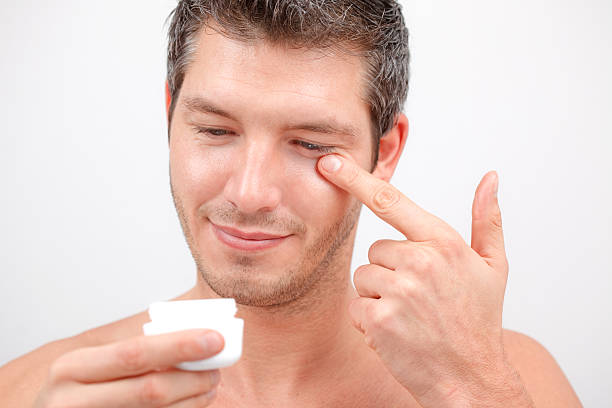Introduction: The Importance of Men’s Skincare
In recent years, skincare has transcended gender boundaries, with men increasingly recognizing the value of a well-maintained skincare routine. Healthy, radiant skin is not just about aesthetics—it’s an important aspect of overall health and self-care. This comprehensive guide will walk you through essential tips and routines to help men achieve and maintain healthy, glowing skin.
1. Understanding Your Skin Type
1.1. Identifying Your Skin Type
- Normal Skin: Balanced, not too oily or dry, with a smooth texture and even tone.
- Oily Skin: Prone to shine and excess oil production, with larger pores and a tendency for acne.
- Dry Skin: Flaky, rough texture with possible redness and tightness.
- Combination Skin: A mix of oily and dry areas, typically oily in the T-zone (forehead, nose, chin) and dry on the cheeks.
- Sensitive Skin: Easily irritated, with redness, itching, or burning sensations.
1.2. Choosing Products for Your Skin Type
- Normal Skin: Use gentle, hydrating cleansers and moisturizers.
- Oily Skin: Opt for oil-free, mattifying products and exfoliants.
- Dry Skin: Look for rich, hydrating creams and avoid harsh, drying ingredients.
- Combination Skin: Select products that balance and address specific needs of different areas.
- Sensitive Skin: Choose fragrance-free, hypoallergenic products with soothing ingredients.
2. Daily Skincare Routine
2.1. Cleansing
- Morning: Start your day with a gentle cleanser to remove overnight sweat and oils. Opt for a product that suits your skin type—gel-based for oily skin and cream-based for dry skin.
- Evening: Cleanse thoroughly to remove dirt, oil, and impurities accumulated throughout the day. Consider a double cleansing method if you wear heavy makeup or sunscreen.
2.2. Exfoliation
- Frequency: Exfoliate 1-3 times a week, depending on your skin type and sensitivity.
- Types: Choose between physical exfoliants (scrubs) and chemical exfoliants (AHAs and BHAs). Chemical exfoliants are often gentler and more effective for removing dead skin cells.
2.3. Moisturizing
- Morning: Use a lightweight, hydrating moisturizer to keep your skin plump and balanced. For oily skin, opt for a gel-based moisturizer; for dry skin, choose a richer cream.
- Evening: Apply a nourishing night cream or moisturizer to support skin repair and hydration while you sleep.
2.4. Sun Protection
- Importance: Sunscreen is crucial for protecting your skin from harmful UV rays that cause premature aging and increase the risk of skin cancer.
- Usage: Apply a broad-spectrum SPF 30 or higher every morning, even on cloudy days. Reapply every two hours if you’re spending extended time outdoors.
3. Additional Skincare Steps
3.1. Toning
- Purpose: Toners help balance the skin’s pH, remove any residual impurities, and prepare the skin for better absorption of subsequent products.
- Application: Apply after cleansing and before moisturizing. Choose alcohol-free toners to avoid drying out the skin.
3.2. Serums
- Benefits: Serums are concentrated treatments that target specific skin concerns, such as acne, hyperpigmentation, or fine lines.
- Usage: Apply a serum after toning and before moisturizing. Look for serums containing ingredients like Vitamin C for brightening, hyaluronic acid for hydration, or niacinamide for soothing.
3.3. Eye Cream
- Purpose: Eye creams address concerns like dark circles, puffiness, and fine lines around the eyes.
- Application: Gently pat a small amount around the eye area in the morning and evening.
4. Lifestyle Tips for Healthy Skin
4.1. Healthy Diet
- Nutrients: Incorporate foods rich in vitamins A, C, E, and omega-3 fatty acids to support skin health.
- Hydration: Drink plenty of water throughout the day to keep your skin hydrated and flush out toxins.
4.2. Regular Exercise
- Benefits: Exercise boosts circulation, supports detoxification, and helps maintain healthy skin.
- Routine: Aim for at least 30 minutes of moderate exercise most days of the week.
4.3. Adequate Sleep
- Importance: Quality sleep is essential for skin repair and overall health.
- Tips: Aim for 7-9 hours of sleep per night and establish a consistent sleep routine.
4.4. Stress Management
- Impact: Chronic stress can lead to skin issues such as acne and premature aging.
- Techniques: Incorporate stress-reducing practices like meditation, yoga, or hobbies into your routine.
5. Common Skincare Concerns
5.1. Acne
- Treatment: Use products containing salicylic acid or benzoyl peroxide to help manage acne. Avoid touching your face and ensure your skincare products are non-comedogenic.
5.2. Signs of Aging
- Prevention: Incorporate anti-aging products such as retinoids and peptides into your routine to address fine lines and wrinkles.
- Maintenance: Regular use of sunscreen and moisturizers helps prevent premature aging.
5.3. Hyperpigmentation
- Treatment: Use products with ingredients like Vitamin C, niacinamide, or hydroquinone to brighten dark spots and even out skin tone.
Conclusion: Achieving Radiant Skin
A consistent and well-rounded skincare routine is key to achieving and maintaining healthy, radiant skin. By understanding your skin type, following essential skincare steps, and incorporating healthy lifestyle habits, you can enhance your skin’s appearance and overall well-being. Embrace these tips and routines to cultivate a skincare regimen that supports a fresh, confident, and vibrant look.
